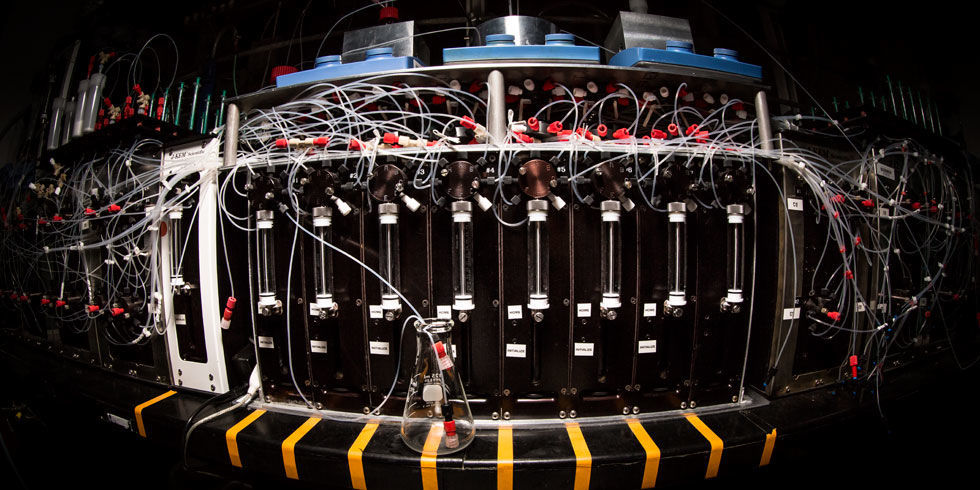Andrew Wheeler from 3D Printing Industry
 Synthesizing different types of molecules using an automated process such as 3D printing would be very disruptive in the medical research and pharmaceutical industries. We’ve seen what Cambrian Genomics is doing with laser printing DNA and their “democratization of creation” ethos, but recently, University of Illinois chemist Martin Burke announced some amazing specs and features of a new molecular synthesizing 3D printer in the journal Science. Burke’s machine, using only a few chemicals, can produce thousands of different molecules.
Synthesizing different types of molecules using an automated process such as 3D printing would be very disruptive in the medical research and pharmaceutical industries. We’ve seen what Cambrian Genomics is doing with laser printing DNA and their “democratization of creation” ethos, but recently, University of Illinois chemist Martin Burke announced some amazing specs and features of a new molecular synthesizing 3D printer in the journal Science. Burke’s machine, using only a few chemicals, can produce thousands of different molecules.

This machine can not only create molecules that humans have produced with other methods, but it could actually create some that have never been created by humans before. This would extend the capabilities of scientific research to examine the various properties of a whole molecular family, rather than just one or two compounds.

Burke explained that the hardest part of developing this technology was figuring out an optimal way to wash away the byproducts that occur with each chemical reaction. Of course, some of this information is unknown (being proprietary), but the fact that they may have figured out a standardized way to isolate and keep the molecules they want to after each reaction is pretty astounding (to me, anyway).
Though Burke’s prototype is limited in the number of chemicals it can produce, he believes it can currently be used to develop new medicines and drugs, saying, “And down the line, like the 3D printer, I expect you could see this process in the hands of non-specialists and even consumers. Giving the general population the ability to synthesize these molecules would be [game-changing] in ways I can’t even imagine.”
What really amazes me, in particular, is that a machine can now synthesize some molecules exponentially faster than a trained chemist using more conventional techniques.
